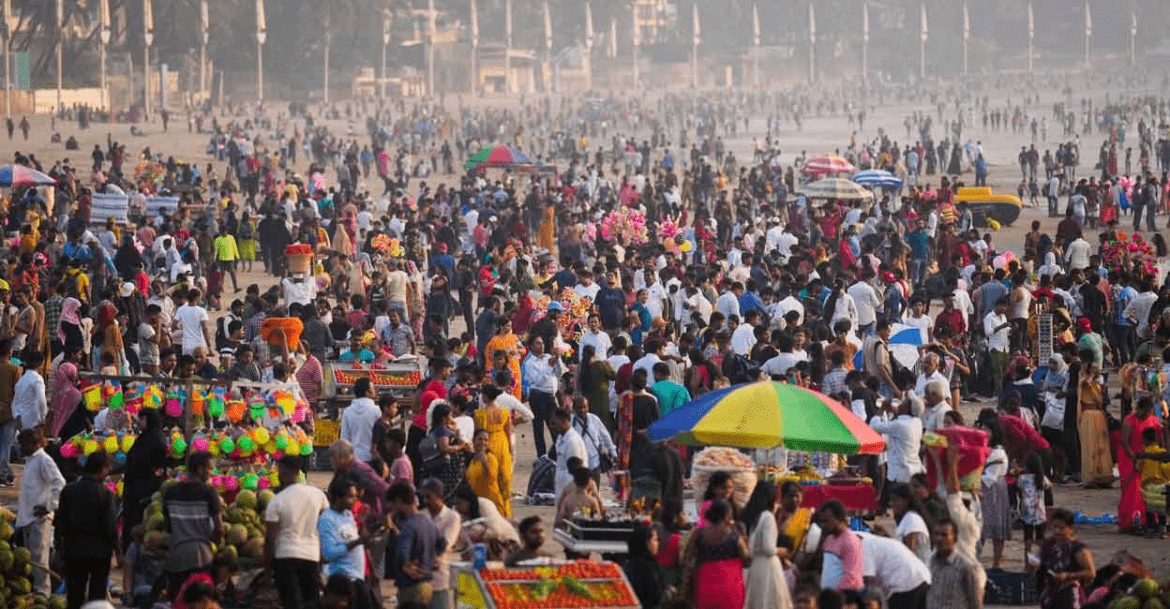AI Generated Summary
- They have reached the top of the corporate ladder, and built resilient and successful businesses that stand the test of time, thanks to the nurturing environment in the country.
- Representative Ilhan Omar of Minnesota, for instance, suggested the potential of a genocide of Muslims in India if the US doesn’t take action.
- 4 billion and an economy that is growing at the fastest rate among all large economies, India has emerged as a hub of immense potential for American businesses.
In a world with a population of 1.4 billion and an economy that is growing at the fastest rate among all large economies, India has emerged as a hub of immense potential for American businesses. Beyond the economic potential, India’s strategic location and geopolitical importance have also made it a sought-after security partner. All of this is occurring against the backdrop of its relationships with other nations, notably its hesitation to openly condemn Russia’s invasion of Ukraine.
However, India’s international reputation is hampered by its low rankings in democracy evaluations and press freedom surveys. More critically, the country’s leadership under Prime Minister Narendra Modi and the Bharatiya Janata Party (BJP) has been accused of violating the rights of India’s Muslim population, which makes up roughly 15% of the country’s demographic. Even though Modi was cleared of responsibility for the 2002 Gujarat riots by India’s Supreme Court, accusations of his alleged complicity continue to resurface.
The Western world at large has voiced concerns about perceived anti-Muslim bias in Modi’s government. Representative Ilhan Omar of Minnesota, for instance, suggested the potential of a genocide of Muslims in India if the US doesn’t take action. The United States Commission on International Religious Freedom, an independent bipartisan agency, considers India an “egregious violator of religious freedom” due to its treatment of Muslims.
But are these accusations and concerns grounded in reality?
Assessments of democracy and press freedom can be subject to bias and contentious debates. However, when it comes to the state of Muslims in India, we are fortunate to have access to comprehensive, high-quality survey data. The Pew Research Center conducted an in-depth survey on religious freedom in India in 2019-2020, interviewing nearly 30,000 households across the country.
The survey’s findings were indeed startling. It revealed that 98% of Indian Muslims feel free to practice their religion in the country. Only 2% felt “not too free,” and virtually no one felt “not at all free.” Moreover, when asked about the level of discrimination they face, only 24% of Indian Muslims felt there was “a lot of discrimination” against Muslims, while 72% felt there was “not a lot.” To put these figures into context, when asked the same question, significantly higher percentages of African-Americans, Hispanic Americans, and Asian Americans in the US reported experiencing “a lot of discrimination.”
Moreover, almost all Indian Muslims expressed pride in their Indian identity. As many as 95% were very proud to be Indian, and another 4% were somewhat proud. These figures paint a very different picture from the narrative of an impending Muslim genocide in India.
Pew Research
This doesn’t mean we should dismiss the concerns raised, but rather we should approach them with a critical eye, relying on facts and data rather than sensationalist narratives. India, like many other nations, grapples with its own unique set of challenges: a large population, hostile neighbors, international terrorism, and serious poverty. Despite these challenges, India’s democracy continues to strive for progress, often hindered more by resource constraints than by malicious intent.
Now, let’s shift our perspective and consider the experience of Sikhs in India. This vibrant and dynamic community navigates the world faith and culture as its guiding principles. They have reached the top of the corporate ladder, and built resilient and successful businesses that stand the test of time, thanks to the nurturing environment in the country.
An example would be Ajay Banga, born and educated in India, and now is the World Bank Group President. The examples are countless.
The narratives that we hear about India, both the positive and the negative, are often selected to fit specific agendas. Yes, India has its problems, but it also has its strengths. The country is not just a land of religious tension and political drama, but also a place where diverse communities have been able to achieve success. In doing so, they have contributed to the overall growth and dynamism of the country.




